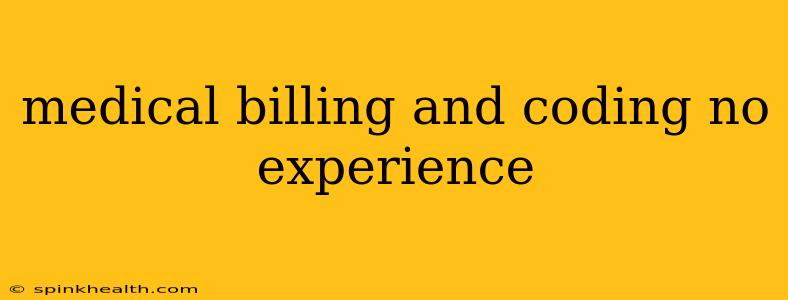The world of healthcare is vast and complex, but behind the scenes, a crucial system keeps everything running smoothly: medical billing and coding. If you're intrigued by the idea of a healthcare career without needing years of schooling, and the prospect of a stable job market excites you, then medical billing and coding might be the perfect fit. This journey isn't without its challenges, but with the right approach, breaking in with no experience is entirely achievable. Let's explore this path together.
My name is Sarah, and I’ve been a medical billing and coding specialist for over 10 years. I remember my own entry into the field – the uncertainty, the learning curve, and ultimately, the rewarding career that unfolded. This article draws on my personal experiences and insights to provide you with a practical guide.
What Exactly is Medical Billing and Coding?
Before diving in, let's clarify what this career entails. Medical coders translate the services provided by doctors and other healthcare professionals into numerical codes using standardized systems like the ICD-10 (International Classification of Diseases, 10th Revision) and CPT (Current Procedural Terminology). These codes are essential for insurance claims. Medical billers then take those codes and create and submit claims to insurance companies, ensuring proper payment for services rendered. It's a crucial link between healthcare providers and insurance reimbursements.
How Can I Get Started With No Experience?
This is the question that many aspiring medical billers and coders ask. The good news is, it’s entirely possible to launch your career without prior experience. Here’s a roadmap:
1. Education and Certification: While not always mandatory, pursuing a formal education is highly recommended. Many community colleges and online schools offer certificate or associate degree programs in medical billing and coding. These programs typically cover anatomy and physiology basics, medical terminology, ICD-10 and CPT coding, and billing procedures. Choosing a reputable program accredited by an organization like the American Academy of Professional Coders (AAPC) or the AHIMA (American Health Information Management Association) can significantly boost your credibility.
2. Building Your Skillset: Alongside formal education, you can enhance your prospects by practicing independently. Many online resources offer free or low-cost coding practice exercises. Focus on mastering the intricacies of ICD-10 and CPT codes. The more you practice, the more confident you'll become.
3. Gaining Practical Experience: This is where things get interesting. Look for entry-level opportunities like:
- Internships: Many healthcare facilities offer internships specifically for medical billing and coding students.
- Volunteer Work: Offering your services to a small clinic or doctor's office can provide invaluable practical experience and networking opportunities.
- Freelance Work: Some medical billing companies may offer freelance projects to those with a foundational understanding of the field.
What are the Common Job Titles in Medical Billing and Coding?
The job market is surprisingly diverse, and you might come across various titles, including:
- Medical Coder: Focuses primarily on translating medical services into codes.
- Medical Biller: Concentrates on preparing and submitting claims to insurance companies.
- Medical Billing and Coding Specialist: Handles both coding and billing aspects.
- Health Information Technician: A broader role that may involve coding, billing, and other aspects of health information management.
Is Medical Billing and Coding a Good Career?
The demand for skilled medical billers and coders remains consistently high, making it a stable and relatively recession-proof career. The potential for growth and advancement exists as you gain experience and possibly specialize in a particular area within the field. The potential salary also varies depending on experience and location, but generally offers competitive pay.
What is the Salary Range for Medical Billing and Coding?
The salary range can fluctuate depending on location, experience, and certification. Entry-level positions might start in a lower range, but as you gain experience and expertise, you can command a higher salary.
What are the Daily Tasks of a Medical Biller and Coder?
A typical day can include reviewing patient charts, assigning appropriate codes based on medical services, preparing and submitting claims, following up on outstanding payments, and managing patient accounts. The work can be detailed and requires focus and accuracy.
The Path Forward: A Rewarding Journey
Breaking into medical billing and coding with no prior experience requires dedication, a willingness to learn, and a strategic approach. By combining formal education, practical training, and consistent effort, you can successfully embark on this rewarding career path. Remember, my own journey started just like yours – with a spark of interest and a determination to succeed. I hope this guide provides you with the clarity and confidence you need to begin your own adventure in the dynamic world of healthcare.

